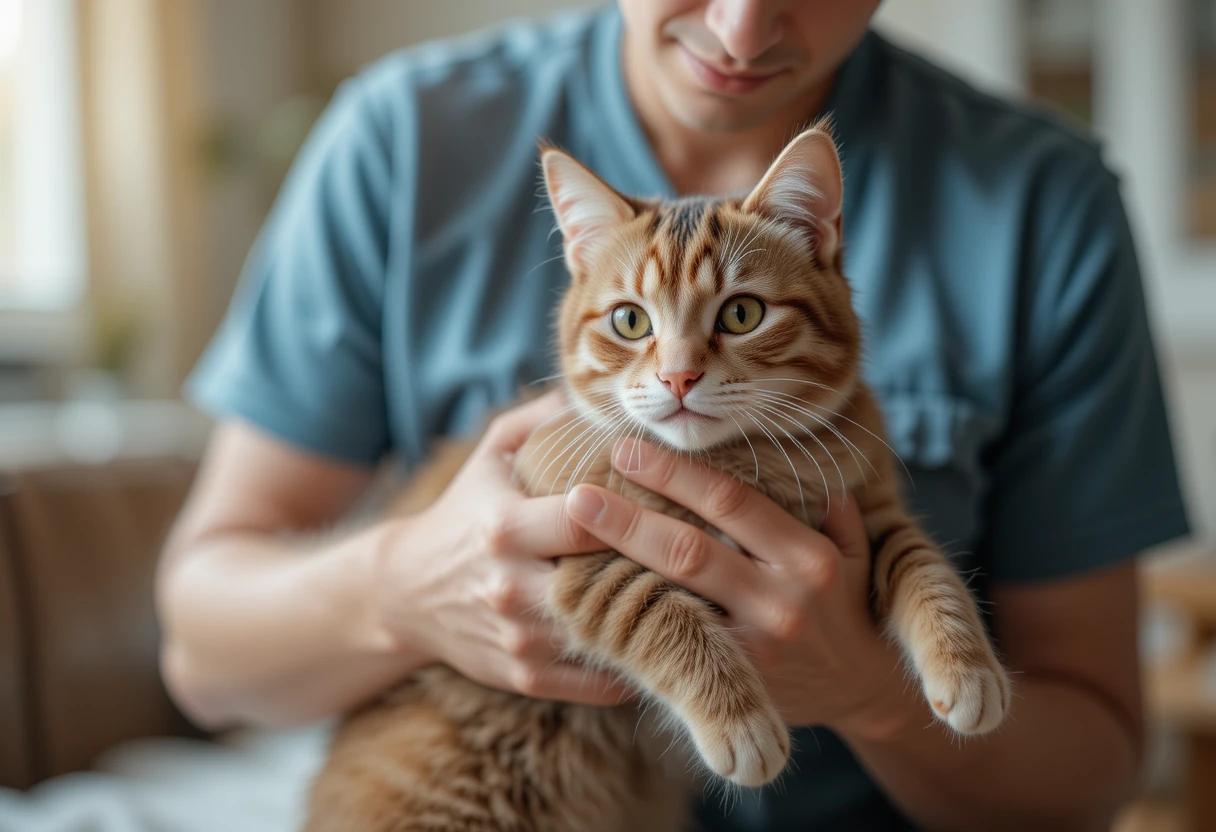Common Health Problems in Cats
As a cat parent, it’s incredibly important to keep a close eye on your cat’s health. Cats, like all pets, are prone to a variety of health issues as they grow older, and understanding these problems is key to ensuring your feline friend leads a long and happy life. Whether you’re caring for a playful kitten or a wise, older cat, being aware of common health issues will help you recognize symptoms early and seek the appropriate care when needed.
In this article, we’ll explore the most common health problems that cats experience, from mild ailments to more serious conditions. We’ll also share tips on how to spot these issues, prevent them, and manage your cat’s health so they can enjoy a long, comfortable life by your side.
Table of Contents
1. Upper Respiratory Infections (URI)
Upper respiratory infections (URI) are one of the most common health issues in cats, particularly among kittens, young adult cats, and those that are frequently around other animals. These infections are often caused by viruses or bacteria, and the symptoms can resemble the common cold in humans. You may notice your cat sneezing, having a runny nose, watery eyes, or coughing. In some cases, an URI may cause your cat to lose their appetite because it becomes hard for them to breathe.
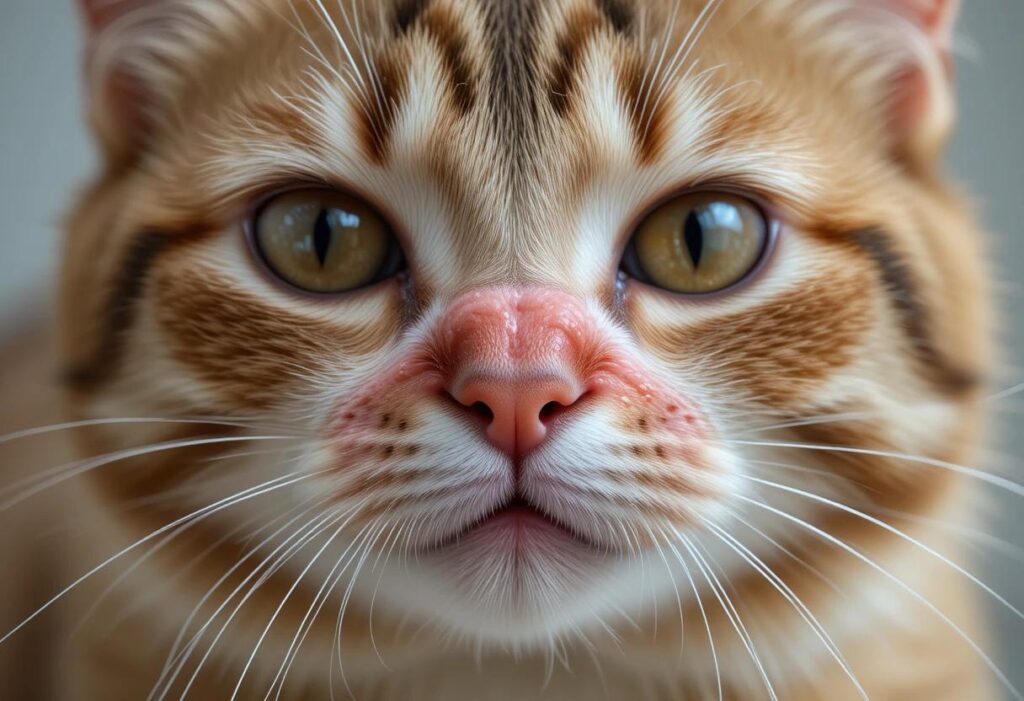
How URIs Affect Cats:
URIs are highly contagious and can spread quickly between cats, especially in environments like shelters, boarding facilities, or homes with multiple cats. These infections can vary in severity, ranging from mild to serious. In severe cases, a cat might have trouble breathing, and if left untreated, it can lead to secondary bacterial infections or even pneumonia. While most cats can recover from a URI with proper treatment, kittens and elderly cats are at higher risk for complications.
Prevention and Treatment:
- Vaccination: Vaccinating your cat regularly can help prevent viral infections such as feline herpesvirus and calicivirus, which are common causes of URI.
- Limit exposure to other cats: Keeping your cat indoors, or at least limiting contact with outdoor cats or unknown animals, can help prevent them from picking up infections.
- Visit the vet promptly: If your cat starts showing symptoms of an URI, visit the vet as soon as possible. Depending on whether the infection is viral or bacterial, your vet may prescribe antibiotics or antiviral medications.
- Ensure hydration: Cats with URIs can become dehydrated. Make sure they are drinking plenty of water and offer them a warm, quiet space to rest while they recover.
2. Diabetes in Cats
Feline diabetes is a condition in which your cat’s body is either unable to produce enough insulin or unable to use it properly. This results in high blood sugar levels. Diabetes is more common in older cats, especially those that are overweight. Symptoms include excessive thirst, frequent urination, weight loss despite normal eating habits, and lethargy.
How Diabetes Affects Cats:
Diabetes in cats is similar to type 2 diabetes in humans. When a cat has diabetes, their body can’t effectively use insulin to process sugar (glucose) from food. As a result, glucose builds up in the bloodstream, leading to various health issues. In severe cases, untreated diabetes can lead to ketoacidosis, a life-threatening condition that requires immediate medical attention.
Prevention and Treatment:
- Balanced Diet: Feeding your cat a healthy, balanced diet is crucial in preventing diabetes. Make sure your cat’s food is appropriate for their age, weight, and activity level.
- Exercise: Encouraging your cat to stay active through playtime is essential. Interactive toys like feather wands, laser pointers, and cat tunnels can provide great exercise and mental stimulation.
- Monitor their weight: Regularly check your cat’s weight, and avoid overfeeding. Obesity is a major risk factor for developing diabetes, so keeping them at a healthy weight can go a long way in preventing the condition.
- Regular vet check-ups: If you notice any signs of diabetes, consult your vet. If diagnosed, your vet may recommend insulin injections and regular blood sugar checks to keep the condition under control.
- Dietary Adjustments: If your cat is diagnosed with diabetes, your vet will work with you to develop a customized feeding plan. High-protein, low-carbohydrate diets are often recommended to help regulate blood sugar levels.
3. Feline Arthritis
Arthritis is a common condition in older cats. As they age, the cartilage between their joints starts to wear down, leading to inflammation and pain. The result is often stiffness, difficulty moving, and a decrease in activity levels. Cats with arthritis may avoid jumping, struggle to climb stairs, or seem less interested in playing.
How Arthritis Affects Cats:
Arthritis in cats is most often caused by the wear and tear on joints as they age, but it can also result from previous injuries or genetic predisposition. Cats with arthritis often hide their discomfort, making it difficult for pet owners to recognize the problem. This is because cats are naturally good at masking pain to avoid appearing vulnerable. As a result, it’s essential to look out for subtle signs like decreased activity, changes in behavior, and difficulty getting around.
Prevention and Treatment:
- Keep your cat active: While you can’t prevent arthritis entirely, keeping your cat at a healthy weight and ensuring they get regular exercise can help keep their joints healthy and reduce stress on the body.
- Pain relief medications: If your cat has been diagnosed with arthritis, your vet may prescribe pain-relieving medications or joint supplements, such as glucosamine, to help ease the discomfort.
- Comfortable living space: Make sure your cat’s environment is as comfortable as possible. Providing soft bedding and ensuring they have easy access to food, water, and their litter box can help them move around with less effort.
- Physical therapy: In some cases, your vet may recommend physical therapy or other treatments like acupuncture to help manage arthritis symptoms.
- Regular vet visits: Routine check-ups are essential to monitor the progression of arthritis and adjust the treatment plan accordingly.
4. Feline Kidney Disease
Kidney disease is a common condition, especially in older cats. The kidneys are responsible for filtering waste products from the bloodstream, and as cats age, they may lose kidney function. Symptoms of kidney disease in cats include increased thirst, frequent urination, vomiting, weight loss, and a dull, unkempt coat.
How Kidney Disease Affects Cats:
Kidney disease in cats is often progressive, meaning it gets worse over time. The kidneys’ inability to filter waste from the blood leads to the buildup of toxins in the body. Over time, this can cause a variety of symptoms, including lethargy, a poor coat, and more serious issues like dehydration. While kidney disease is common in senior cats, it can also be found in younger cats due to genetics or underlying conditions.
Prevention and Treatment:
- Encourage water consumption: Cats with kidney disease often become dehydrated. Offering a water fountain or wet food can help ensure they stay hydrated.
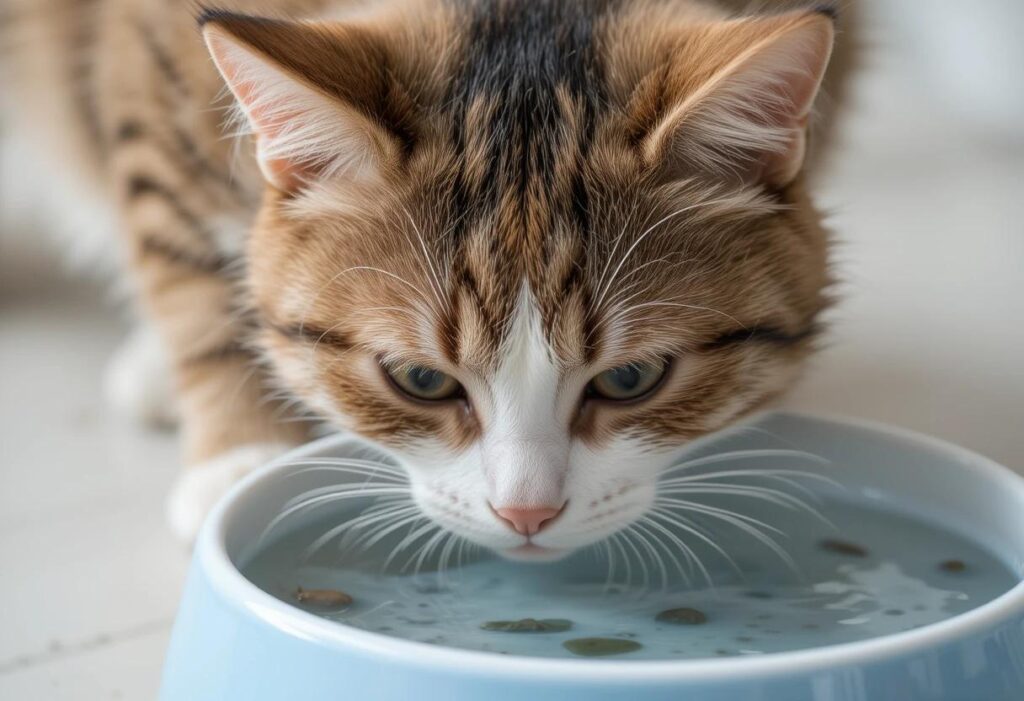
- Special diets: If your cat is diagnosed with kidney disease, your vet may suggest a special diet to help manage the condition and slow its progression.
- Regular veterinary check-ups: Regular blood tests and urine tests can help catch kidney disease early. Early detection is key in managing the disease effectively.
- Fluid therapy: For some cats, your vet may recommend subcutaneous fluid therapy, which involves giving your cat fluids under their skin to help support their kidney function.
- Monitor symptoms: Be vigilant about changes in your cat’s behavior, appetite, and litter box habits, as these may indicate kidney issues.
5. Feline Heart Disease
Heart disease in cats is relatively common but often goes undiagnosed because many cats show no obvious symptoms. The most common type of heart disease in cats is hypertrophic cardiomyopathy (HCM), which causes the heart muscle to thicken and makes it harder for the heart to pump blood efficiently. Symptoms of heart disease in cats can include rapid weight loss, lethargy, loss of appetite, and difficulty breathing.
How Heart Disease Affects Cats:
Heart disease often develops slowly, and many cats will not show obvious signs until the condition has progressed. The most common type, hypertrophic cardiomyopathy (HCM), affects the heart’s ability to pump blood, which can lead to fluid buildup in the lungs or even heart failure. Cats with heart disease may also suffer from blood clots, which can cause sudden lameness or paralysis in the hind legs.
Prevention and Treatment:
- Early detection: Regular vet check-ups are vital, as early detection can improve your cat’s quality of life and treatment outcomes. Heart disease can sometimes be detected during a routine physical exam or through an echocardiogram.
- Medications: If your cat is diagnosed with heart disease, your vet may recommend medications to help manage the condition. These may include diuretics to reduce fluid buildup or beta-blockers to support heart function.
- Reduce stress: It’s essential to limit stressful situations and avoid overexerting your cat. Keeping your cat calm and relaxed can prevent unnecessary strain on their heart.
6. Fleas and Ticks
Fleas and ticks aren’t just a nuisance; they can lead to severe health problems for your cat. Fleas can cause itching, hair loss, and skin infections, while ticks can transmit dangerous diseases like Lyme disease. It’s important to regularly check your cat for fleas and ticks, especially if they spend time outdoors.
How Fleas and Ticks Affect Cats:
Fleas are tiny, parasitic insects that feed on your cat’s blood, and can cause discomfort, itching, and inflammation. If left untreated, fleas can lead to more severe problems, such as flea allergy dermatitis, anemia, or even tapeworm infections. Ticks are also dangerous because they can transmit diseases like Lyme disease, anaplasmosis, and ehrlichiosis.
Prevention and Treatment:
- Preventative treatments: Consult your vet about flea and tick preventatives, such as spot-on treatments, oral medications, or flea collars. These products are effective at preventing infestations.
- Inspect your cat: After your cat spends time outside, check their fur for fleas or ticks. If you find any, remove them promptly to prevent further problems.
- Consult the vet: If your cat is dealing with a flea or tick infestation, take them to the vet for proper treatment. Your vet can recommend safe products to eliminate the pests and prevent future problems.
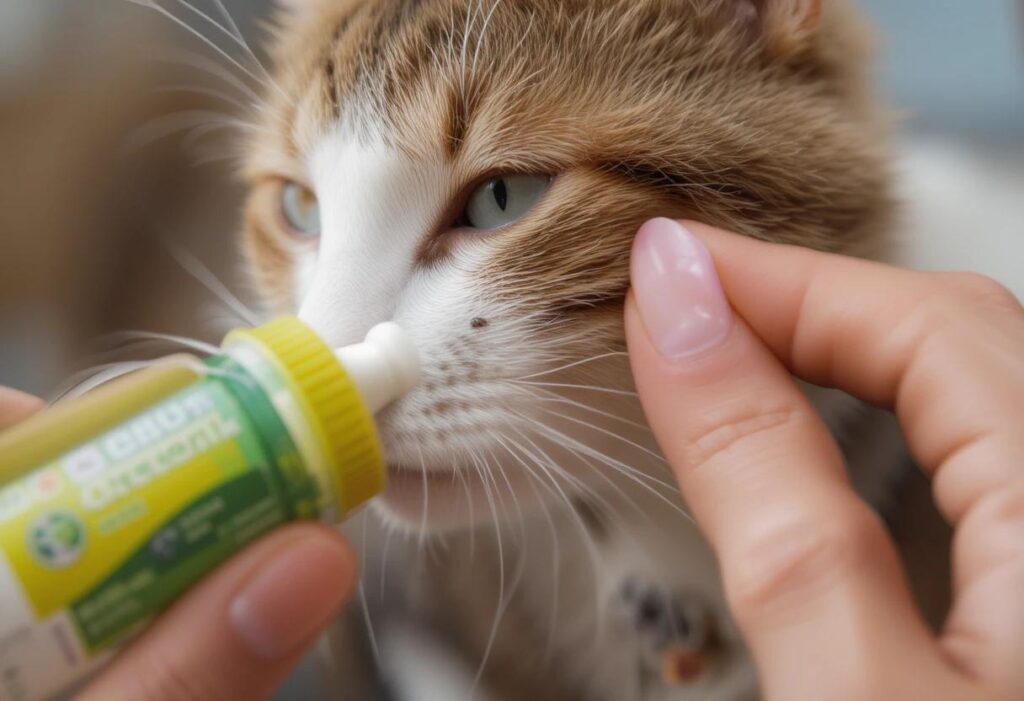
7. Urinary Tract Infections (UTIs) and Blockages
Urinary tract infections (UTIs) are common in cats, and they can lead to more serious conditions like urinary blockages, especially in male cats. A UTI can cause symptoms like frequent urination, blood in the urine, and straining to urinate. A urinary blockage is much more dangerous and can prevent your cat from urinating entirely, which is a medical emergency.
How UTIs and Blockages Affect Cats:
When a cat has a UTI, bacteria or crystals can irritate the urinary tract, causing inflammation. If untreated, these infections can lead to the formation of urinary crystals or stones, which can block the urinary tract. Male cats are particularly susceptible to blockages due to their narrower urethras.
Prevention and Treatment:
- Proper hydration: Make sure your cat always has access to fresh water to encourage proper hydration. Cats who don’t drink enough are more prone to urinary issues.
- Diet for urinary health: Some cat foods are formulated to promote urinary health and prevent the formation of crystals or stones in the urinary tract.
- Immediate vet care: If your cat shows signs of a UTI or is unable to urinate, seek veterinary care immediately. A blockage requires urgent treatment, often including catheterization or surgery.
8. Obesity in Cats
Obesity is becoming an increasingly common problem among cats, especially indoor cats. It can lead to a variety of health issues, including diabetes, heart disease, and joint problems. Obesity often results from overfeeding, lack of exercise, and not controlling portions.
How Obesity Affects Cats:
Obesity places extra stress on a cat’s joints and organs, and it can lead to long-term health problems like diabetes, kidney disease, and liver issues. Cats that are overweight may also suffer from a decrease in mobility, making it harder for them to engage in regular activities and play.
Prevention and Treatment:
- Portion control: Avoid free-feeding your cat. Instead, provide measured portions based on their age, size, and activity level.
- Encourage play: Regular play is essential for preventing obesity. Use interactive toys like feather wands or laser pointers to keep your cat moving and engaged.
- Weight management plan: If your cat is overweight, talk to your vet about creating a healthy weight loss plan. This may include a special diet and a gradual increase in physical activity.
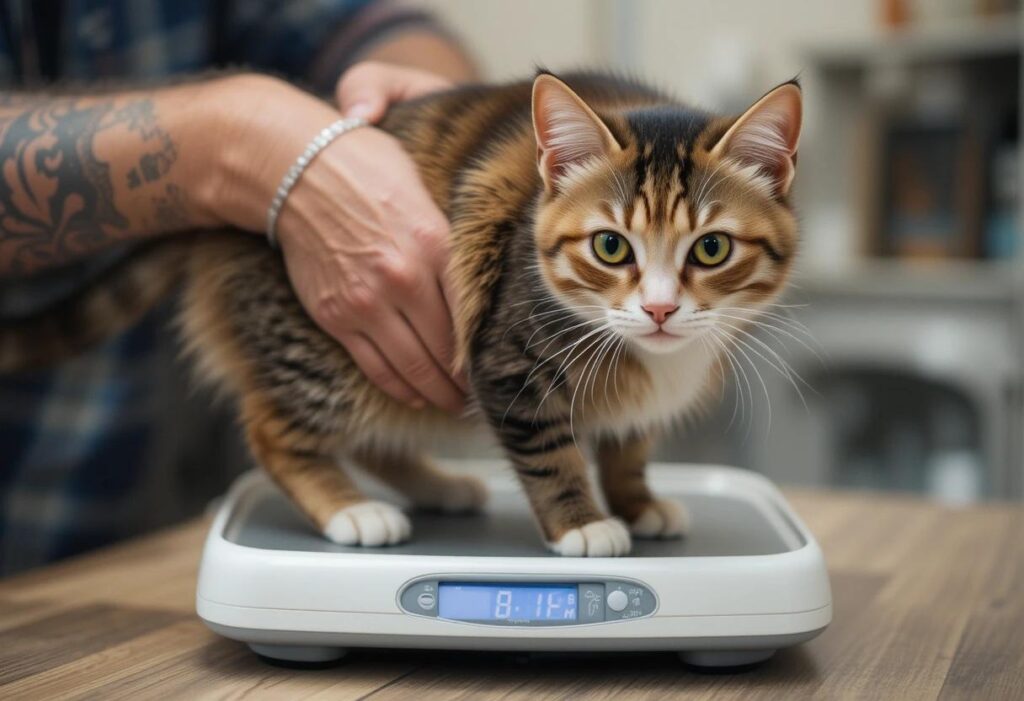
9. Feline Cancer
Cancer is a serious health problem that can affect cats, especially as they age. The symptoms of cancer in cats vary depending on the type and location, but common signs include unexplained weight loss, changes in appetite, lethargy, and the appearance of lumps or bumps.
How Cancer Affects Cats:
Feline cancer can affect almost any part of the body. Common types include lymphoma (cancer of the lymph nodes), mast cell tumors, and squamous cell carcinoma. Symptoms can be vague, such as changes in eating habits, unusual lumps, or lethargy. Because cats tend to hide their illness, it’s important to monitor for subtle changes in their behavior.
Prevention and Treatment:
- Routine vet check-ups: Regular vet visits can help catch cancer early, increasing the chances of successful treatment. Your vet may examine your cat for unusual growths or lumps during these visits.
- Treatment options: Depending on the type of cancer, your vet may recommend surgery, chemotherapy, or radiation therapy. In some cases, palliative care is provided to manage pain and improve the quality of life.
- Monitor behavior changes: If you notice any unusual behavior or physical changes, such as lumps or swelling, consult your vet immediately.
Final Thoughts
While cats are generally healthy animals, they can be prone to a variety of health problems, particularly as they age. Understanding common health issues in cats and recognizing the signs early can make a big difference in their overall well-being. By maintaining regular vet check-ups, providing proper nutrition, keeping your cat at a healthy weight, and offering a safe and comfortable environment, you can help prevent many health problems and ensure that your cat lives a long, happy life.
By staying proactive and attentive, you’ll be able to address any health issues that arise and give your feline friend the care they need to stay healthy and happy for years to come.
Ready to Become the Best Cat Parent Ever?
FAQs
What are the most common health problems in cats?
The most common health problems in cats include things like fleas, ticks, urinary tract infections (UTIs), obesity, arthritis, diabetes, and upper respiratory infections (URI). Some older cats may also develop kidney disease or heart problems. It’s important to keep an eye out for any changes in your cat’s behavior and see a vet regularly.
How can I tell if my cat is sick?
Some signs that your cat might be sick include not eating or drinking, losing weight, hiding more than usual, coughing or sneezing, or having trouble breathing. If your cat is suddenly very lethargic, has changes in their bathroom habits, or seems in pain, it’s best to take them to the vet right away.
Why is my cat always scratching?
If your cat is scratching a lot, they might have fleas or other skin problems. Fleas cause itching and irritation. It could also be a sign of allergies or dry skin. If the scratching gets worse or causes sores, it’s a good idea to visit the vet for a check-up.
How can I help my cat lose weight?
Helping your cat lose weight requires a combination of proper diet and exercise. Feed them measured portions of healthy food, avoid overfeeding or giving too many treats, and make sure they get regular playtime. You can try using toys that encourage them to move around, like laser pointers or feather wands. Always talk to your vet before starting a weight-loss plan.
What is feline diabetes, and how is it treated?
Feline diabetes happens when your cat’s body can’t make or use insulin properly, which can lead to high blood sugar. Common signs include excessive thirst, urinating more than usual, and weight loss. If your cat is diagnosed with diabetes, your vet may recommend insulin injections and a special diet to help manage their blood sugar levels.
How do I know if my cat has fleas or ticks?
Fleas are tiny and cause itching, so if your cat is scratching a lot or you see small, dark specks in their fur (flea dirt), they may have fleas. Ticks are larger and may be visible on your cat’s skin, usually around their head, ears, or neck. It’s important to check your cat regularly, especially if they go outside, and to use flea and tick preventatives.
What should I do if my cat stops eating or drinking?
If your cat suddenly stops eating or drinking, it could be a sign of illness or stress. Cats can also stop eating if they have dental problems or stomach issues. If it lasts more than a day or is accompanied by other symptoms like vomiting or lethargy, make an appointment with your vet right away.
Why is my cat peeing outside the litter box?
If your cat is peeing outside the litter box, it could be because they have a urinary tract infection (UTI), or they may be stressed or upset. Sometimes it’s a sign that the litter box isn’t clean enough or in a place that feels safe to them. If it continues, it’s a good idea to visit the vet for a check-up.
Can my cat get sick from other animals or the outdoors?
Yes, cats can catch illnesses from other animals, especially if they go outside. They can pick up viruses, parasites (like fleas and ticks), or infections from other animals. It’s always a good idea to keep your cat indoors to prevent these risks, but if they do go outside, make sure they’re protected with vaccinations and flea/tick preventatives.
How often should I take my cat to the vet for check-ups?
It’s a good idea to take your cat to the vet for a check-up at least once a year, even if they seem healthy. Older cats or those with health problems may need to visit the vet more often. Regular check-ups help catch any health issues early, so your cat can live a long and happy life.

